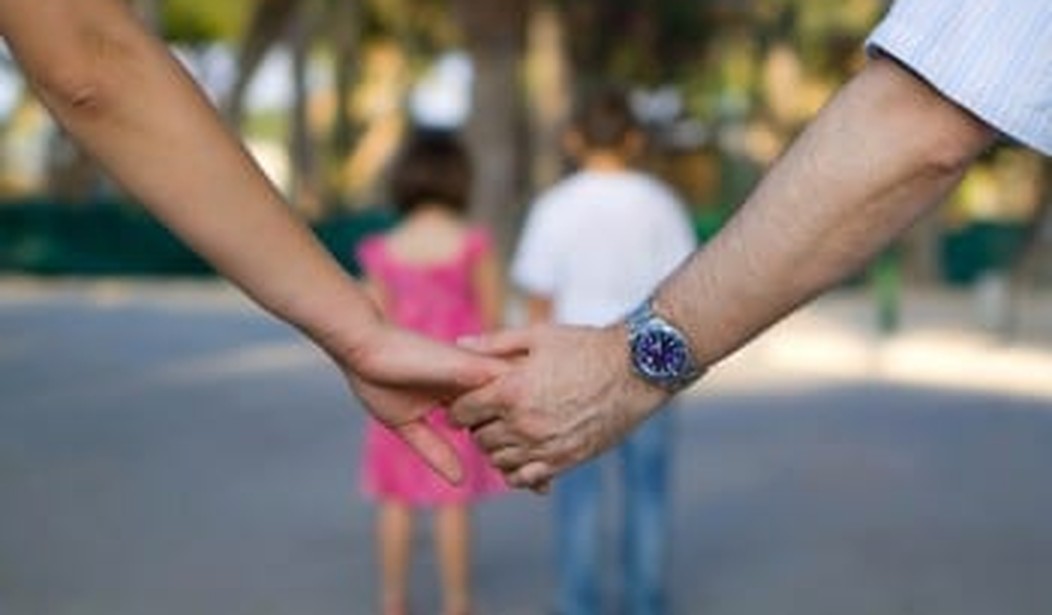Parents could take a lesson from Goldilocks. What the blonde home invader lacked in respect for property, she made up for with an affinity for moderation. When it comes to loving our kids, we tend to err in one of two directions. We either care too much or not enough. We should aim for just right.
The worst of these two errors may be caring for our children too little. But the more common one is caring too much. Indeed, as noted by authors Danielle and Astro Teller, parenting has become something of a religion. Writing for Quartz:
To understand the frightening power of the parenthood religion, one need look no further than the 2005 essay in The New York Times by Ayelet Waldman, where the author explained that she loved her husband more than her four children. On “Oprah Where Are They Now,” the author recently reaffirmed the sentiments reflected in her New York Times article, and she added that her outlook has had a positive impact on her children by giving them a sense of security in their parents’ relationship. Following the publication of her essay, Waldman was not only shouted down by America for being a bad mother; strangers threatened her physically and told her that they would report her to child protective services. This is not how a civil society conducts open-minded discourse. This is how a religion persecutes a heretic.
From whence does such inquisition emerge? Why do so many parents treat their children as the most important things in their lives?
It wasn’t always that way. Children used to have a place. They were to be seen and not heard. They were to complement the lives of their parents, rather than detract from them. Somewhere along the line, that changed, and kids became a priority surpassing even their parents’ marriage.
… Children who are raised to believe that they are the center of the universe have a tough time when their special status erodes as they approach adulthood. Most troubling of all, couples who live entirely child-centric lives can lose touch with one another to the point where they have nothing left to say to one another when the kids leave home.
That’s tragic. The importance of children goes without saying. But the priority we grant them should not exceed that which they merit. Kids are a product of marriage, not the point of it. That’s something which they should grow to know.
My boys know I love them. But they know I love their mother more. My sons’ attempts to divide and conquer, to pit their mother and me against each other, meet with frustration and rebuke. I will always choose her over them, and I make sure they know it.
That’s the way it ought to be. It conveys to my sons that they are not the most important people in the home. It also models how they should value the women they one day choose to marry. These are critical lessons which will affect how they regard marriage and family.
If we regard children as the priority over marriage, then children become a drain upon our happiness. Such an attitude drives young people to avoid parenthood, concluding that life as a parent is no life at all. On the contrary, if marriage takes precedence, then children add a value greater than duty.
Adherents to “the parenthood religion” fear how children will react to being a lesser priority in their parents’ lives. There’s nothing to fear. Kids will find comfort in it. Acts of defiance aside, kids crave boundaries. Their place of submission is a place of safety.
Indeed, parents should instead fear how their children will react to being the top priority in the home. Kids need to be led, to be taught, to be raised. If they are the most important people in the home, who qualifies for that job? Why should a kid listen to a parent who exists to serve them?
On top of undermining parental authority, treating kids like the purpose of life places an undue burden upon them to warrant that status. A kid may not consider it consciously, but will sense on some level that their parents place them on a pedestal. That creates an unhealthy pressure to be the source of Mom and Dad’s happiness, which is not a responsibility they should bear. Kids should grow able to focus on their own lives. Parents should model that.









Join the conversation as a VIP Member